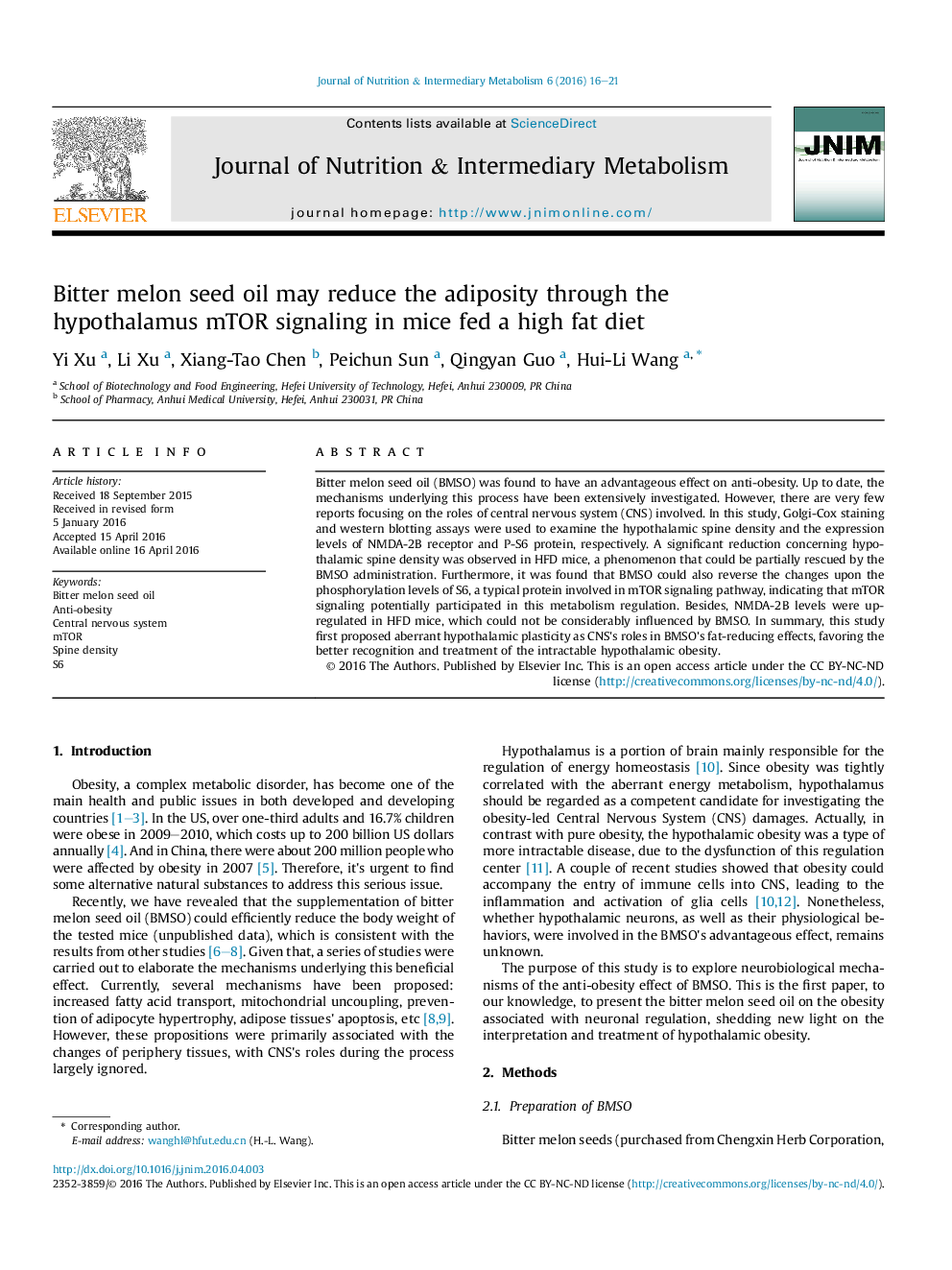| Article ID | Journal | Published Year | Pages | File Type |
|---|---|---|---|---|
| 2688593 | Journal of Nutrition & Intermediary Metabolism | 2016 | 6 Pages |
•BMSO's anti-obesity effect was first linked with changes of neuronal activities of CNS.•Hypothalamic spine densities were regulated by high fat diet and BMSO's supplementation.•mTOR signaling played important roles in BMSO's anti-obesity effect.•A model concerning the mechanisms underlying BMSO's effects was proposed.
Bitter melon seed oil (BMSO) was found to have an advantageous effect on anti-obesity. Up to date, the mechanisms underlying this process have been extensively investigated. However, there are very few reports focusing on the roles of central nervous system (CNS) involved. In this study, Golgi-Cox staining and western blotting assays were used to examine the hypothalamic spine density and the expression levels of NMDA-2B receptor and P-S6 protein, respectively. A significant reduction concerning hypothalamic spine density was observed in HFD mice, a phenomenon that could be partially rescued by the BMSO administration. Furthermore, it was found that BMSO could also reverse the changes upon the phosphorylation levels of S6, a typical protein involved in mTOR signaling pathway, indicating that mTOR signaling potentially participated in this metabolism regulation. Besides, NMDA-2B levels were up-regulated in HFD mice, which could not be considerably influenced by BMSO. In summary, this study first proposed aberrant hypothalamic plasticity as CNS's roles in BMSO's fat-reducing effects, favoring the better recognition and treatment of the intractable hypothalamic obesity.
